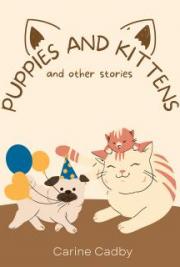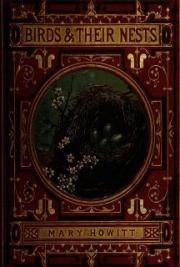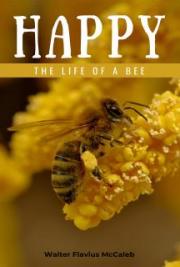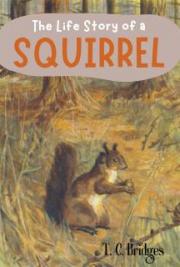Echinacea spp
Should be
avoided if immune system is not functioning normally, e.g. autoimmune
diseases such as multiple sclerosis or diabetes mellitus, as it may aggravate
autoimmune conditions.
Elecampane
Inula helenium
As with
Devil’s Claw which is from the same plant family – this herb should be
avoided in diabetes, pregnancy and where cardiac treatment is in progress.
Fenugreek
Trigonella foenum-graecum
Should be
avoided in pregnancy, but is actually used to promote lactation in humans so
may be useful for bitch once pups are born.
It may also interfere with absorption of conventional drug therapies
so care should be taken, especially in cases of diabetes.
Garlic
Allium sativum
May cause
some digestive upsets and bloating, or redness and irritation if applied to
the skin. Moderation is important in
using this herb as long-term high dosage may lead to blood disorders and
kidney damage. Garlic should not be
used in young pups as they are not producing red blood cells during the first
6-8 weeks of life.
Hawthorn
Crataegus spp
Hawthorn
is generally considered to be a very safe herb for animals, however, should
be avoided in cases where conventional cardiac drug treatment is in place as
it may enhance the effects of these drugs and increase their effects.
Hops
Humulus lupulus
Greyhounds
seem to be particularly sensitive to hops, so ingestion should be limited and
possibly avoided for these dogs. Dogs
like the taste of hops, so can get a little greedy so care should be taken to
limit intake to recommended dosage.
Medicinal quality hops should not cause problems, and hops that have
already been through a brewing process should definitely not be used.
Kelp
Fucus vesiculosus
Prolonged
use may reduce iron absorption in the intestines and may also affect other
mineral balances in the body. It
should not be used in pregnancy or lactation or if hyperthyroidism is present
in any form. Kelp may interact with
other thyroid treatments such as thyroxin so should be avoided if thyroxin
treatment is used. It may also cause
other mineral imbalances if used long term.
Marshmallow
Althaea officinalis
Should be
used with caution if animal is diabetic.
May also affect absorption of conventional drugs so care must be
taking in using marshmallow in these situations.
Meadowsweet
Filipendula ulmaria
Contains
salicylic acid (as does aspirin) and should be avoided in sensitive
animals. Should be avoided in
pregnancy and lactation. Should also
be avoided if animals is taking anticoagulants as it may it is thought to
contain heparin-like anticoagulant substances that may increase their effects.
Nettle
Urtica dioica
High
doses of nettle may be irritating to the kidneys after awhile, particularly
in cases of pre-existing kidney disease.
Touching the plant results in a painful, blistering sting, which is
neutralised through drying the plant. Animals
that have plant allergies may be sensitive to nettle, which may cause
allergic dermatitis (aside from the irritant reaction which the fresh herb
causes when touched).
Rosehips
Rosa spp
Huge
quantities may lead to diarrhoea due to the high ascorbic acid content, so
moderation is recommended.
Skullcap
Scutellaria laterifolia
Generally
a safe herb but large quantities may be damaging to the liver. Best avoided in pregnancy.
Vervain
Verbena officinalis
Not
recommended in pregnancy, but is known to promote lactation so may be useful
to bitches after birth. It is possible
that it inhibits iron absorption so it is not recommended in cases of iron
deficiency anaemia or where iron supplementation is being given. It could be given at a different time of day.
White willow
Salix alba
Should
not be given to cats without professional guidance due to the salicylic acid
which can be fatal to cats.
Yarrow
Achillea millefolium
Possible
skin allergies if animal sensitive to it. Yarrow contains thujone which may be
toxic in large doses, so moderate use is recommended if used for extended
periods. Not recommended in pregnancy
or lactation due to the high levels of volatile oils in this plant.

Join The Web’s No. 1 Group of Passionate Animal Lovers
http://www. brookbyherbs.co.nz
Herbs to Avoid During Pregnancy
Many herbs should not be given to pregnant
or lactating animals. Herbs that contain large quantities of volatile oils such
as aromatic mints, parsley seed and juniper should not be used as they can pass
through the placenta to the foetus.
Herbs that stimulate or suppress hormone
production should be avoided-these include licorice, wild yam, and yucca root.
Herbal laxatives should also be avoided
during pregnancy such as senna, cascara and yellow dock.
Other herbs to avoid due to their bitter
alkaloid content are Oregon Grape, red clover, feverfew and gingko.
In summary, if you are unsure about the
safety of an herb during pregnancy, assume it is contraindicated and don’t use
it!
Home Remedies

Herbal Flea Rinse
Make a tea rinse of herbs by covering the
mixture with boiling water and allowing to stand until cooled. You can also add
6-10 drops of Bitter Orange essential oil for extra strength to each 8 ounces
of rinse.
1 part feverfew flowers
1 part mullein flowers
1 part yarrow flowers, leaves and stems
1 part celery seeds (freshly ground)
3 parts calendula flowers
Join The Web’s No. 1 Group of Passionate Animal Lovers
http://www. brookbyherbs.co.nz
Herbal Flea Repellent Powder

Combine the following ingredients making
sure they are as fresh as possible. Though flea powders aren’t as effective as
herbal rinses, they are an easy method for when you are busy. Make in small,
fresh batches. You can use a mortar and pestle to grind ingredients. Sprinkle
and brush into your animals coat daily.
1 part diatomaceous earth
2 parts feverfew flowers
2 parts mullein flowers
2 parts yarrow flowers, leaves and stems
1 part sage or thyme
Anti-worm Food Supplement
Combine the following ingredients. Feed the
mixture at a dosage rate of 1 teaspoon per pound of food daily. Feed 5 days on
and two days off each week until worm populations are reduced to acceptable
levels.
2 parts unsalted, raw pumpkin seeds (ground
or whole)
1 part garlic powder
1 part fennel seed
1 part yucca root
First Aid Kit Suggestions
- Blankets, extra collars, leash, muzzle, water bowl
- Gauze, bandages, small flashlight, scissors, tweezers, swabs,
activated charcoal powder (for poisonings) sterile saline solution for
washing out wounds and eyes
- Herbal salve, Rescue Remedy, cayenne pepper and yarrow mix (to
stop the bleeding) Echinacea (for infections)
Join The Web’s No. 1 Group of Passionate Animal Lovers
http://www. brookbyherbs.co.nz

Copyright by
Brookby Herbs-38 Spencer St, Remuera,
Auckland 1050, New
Zealand
info@brookbyherbs.co.nz
www.brookbyherbs.co.nz
Join The Web’s No. 1 Group of Passionate Animal Lovers
http://www. brookbyherbs.co.nz











